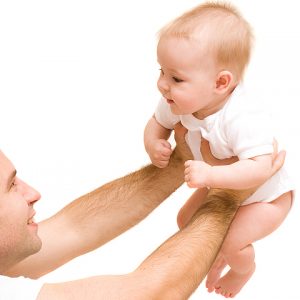
Research has shown that our earliest relationship with our main caregivers (typically a parent) can have a profound effect on how we develop physically, emotionally, cognitively and socially. This early emotional wellbeing is a key factor in determining to what extent individuals will make the most of life’s opportunities, including education, and how they will manage later relationships with partners and their own children.
There are key reasons for this:
1. The brain develops at its quickest rate whilst in the womb and within the first two years after birth. The connections within our brain networks that determine our emotional reactions and capacity for clear thinking are ripe for development during this stage of life (and, again, to a lesser extent in adolescence), and these automatically adapt to the emotional environment in which we find ourselves. To maximise their potential, growing brains need loving and appropriate relationship-based stimulation to thrive.
2. A baby is reliant on her main carers to respond to her needs for warmth, food, emotional regulation, stimulation and safety. A carer that is tuned into his or her baby’s needs responds sensitively, appropriately and in a timely way, providing the necessary care, love and protection for the baby to feel safe to develop and explore the world around her. These supportive interactions between a baby and her main carers sculpt the brain connections that are being made and that will support her emotional, social, cognitive and physical development. In this way, the baby adapts to her environment on both an emotional and a neurological level.
3. There are times when a carer may not be able to respond to his or her baby in a way that helps the infant feel safe, secure and understood. Where carers are themselves struggling with emotional wellbeing, or are overwhelmed by stress, this can often make it difficult for them to provide the sensitive and nurturing relationship needed for their baby’s emotional development.
Many physical, mental, and environmental stressors, such as mental illness, a difficult childhood history, substance misuse, domestic abuse, homelessness and poverty, can affect a carer’s emotional wellbeing. The baby may trigger distress if he represents historical or present trauma for the carer. Distress within the carer can create an unsettling and inconsistent environment for the baby that will adversely affect the infant’s capacity for emotional regulation (self-control), and, ultimately, his emotional and behavioural development.
Where a carer is struggling for whatever reason with responding to their baby in a sensitive and appropriate way, parent-infant therapy such as baby massage and baby yoga can assist in establishing a healthy relationship.